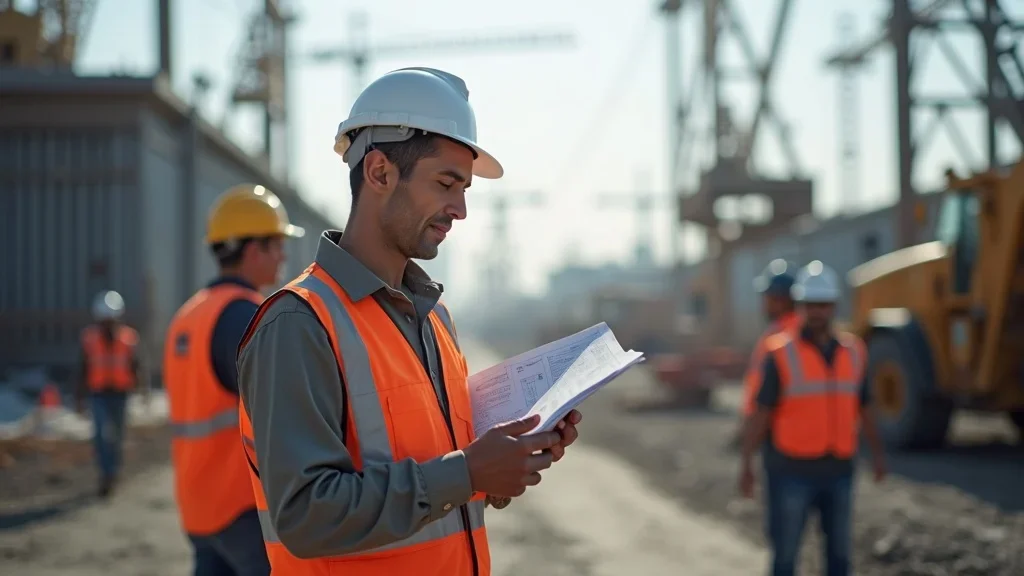If you could cut costs, raise take-home pay, and improve retention—all without adding new expenses—wouldn’t you want to know more?
Opening Insights: The Hidden Link Between Healthcare Costs and Cash Flow in Construction Businesses For construction CEOs and CFOs navigating tight margins, the pressure is relentless. Healthcare expenses surge each year, eroding profits and putting cash flow at risk. Yet, beneath the surface, a remarkable opportunity remains mostly untapped: rethinking employee benefits can dramatically reduce FICA liabilities and inject immediate cash into your operation. The result? Not just survival, but renewed financial stability for your construction business—better recruitment, higher retention, and healthier, more motivated crews "76% of construction CEOs name rising healthcare costs as the biggest threat to their annual cash flow plans — but most overlook how benefit structures can double as liquidity tools." What You’ll Learn About Cash Flow Strategies for Construction CEOs How innovative benefit programs reduce FICA liabilities and improve cash flow management
Real-world case studies where cash flow risks became liquidity wins
Practical frameworks: From early pay programs to optimized payment terms
Expert insights on keeping your workforce healthy—and your margins safer Understanding Cash Flow Management for Construction Companies At its core, cash flow management is the practice of monitoring and optimizing the movement of money in and out of your construction business. This process is the heart of every construction company's financial health. Between invoicing, material expenses, and payroll, cash flow determines how easily you can respond to both predictable costs and sudden opportunities. Most construction businesses face ongoing challenges—the high upfront expenses of launching new projects, delayed client payments, and the unpredictability of labor or supply chain disruptions. To protect your company’s future, you need a system for effective cash flow management that anticipates these hurdles, preserves liquidity, and leverages every strategic advantage available—including innovative benefits that often fly under the radar. Defining Effective Cash Flow for Construction Businesses Effective cash flow means more than just “money in, money out.” For construction companies, it’s about sustained liquidity—ensuring there’s enough working capital to meet payroll, fund operating costs, and invest in growth opportunities, even when projects or payments lag. This requires regularly updated cash flow forecasts, a clear picture of inflows and outflows, and a keen understanding of how seasonal fluctuations and industry trends will affect your bottom line. Construction CEOs who prioritize cash flow management don’t just react to crises—they build flexible processes that keep finances healthy month after month. Leveraging digital tools and revamped benefits structures expands your ability to forecast cash inflow and reduce disruptive surprises, fundamentally strengthening your construction business. Why Cash Flow Issues Persist: Industry-Specific Pressures Despite fierce focus, cash flow issues remain a chronic challenge for construction firms. Tight project timelines, high capital outlays, and a dependency on milestone-based payments mean that even profitable jobs can cause liquidity crunches. Add to this delayed invoicing, slow pay cycles from clients, and rising insurance and benefits costs, and many construction companies find themselves in a perpetual scramble to cover expenses. The construction industry’s unique payment calendar and subcontractor structure introduce volatility. Even with effective bid management and project planning, your construction business’s financial health often hinges on factors outside your immediate control—making proactive cash flow management a true art and science. Identifying Cash Flow Issues: Early Signs and Long-Term Risks for Construction CEOs Recognizing trouble early can make the difference between a minor squeeze and a major business disruption. The first signs of cash flow stress often show as slow vendor payments, late payroll, or a need to dip into credit just to cover daily costs. For construction CEOs, these warning signals are not just accounting anomalies—they’re the first dominoes in a potentially serious chain reaction. Over time, persistent cash flow issues can erode trust with suppliers and make it harder to attract top-tier talent. When you’re constantly reacting to cash shortages, there’s little energy left for growth or innovation, and your construction business may even face compliance issues or project delays. Early recognition and decisive action are vital to build resilience, sustain operations, and weather the complexity of the construction industry. Recognizing Cash Flow Inflows and Outflows in Construction For construction CEOs, regular monitoring of cash inflows and outflows is essential. Cash inflow comes from project milestone payments, progress draws, and change order approvals, while cash outflows include payroll, materials, subcontractor payments, taxes, and benefits. Tracking these in real time allows you to identify potential bottlenecks and understand whether your cash position is improving or at risk. Often, unrecognized changes in project pace or early payment delays from clients can snowball—impacting your ability to meet obligations and forcing quick borrowing or postponement of critical supply purchases. Active cash flow management means having up-to-date dashboards or reports that make it easy to spot anomalies and respond quickly, keeping your construction firm agile. Common Causes: Delayed Payment Terms and Project Management Strain Construction projects often suffer from slow-paying clients and unpredictable payment terms. With project management schedules rarely aligning perfectly with invoicing cycles, construction businesses must fund labor and materials upfront, long before seeing reimbursement. This “cash float” can become unsustainable, especially on multi-phase jobs or when clients negotiate longer pay periods. Layer on top the constant pressure of managing subcontractors, insurance, and compliance costs, and any fluctuation becomes a threat to positive cash flow. Without effective systems, even a brief disruption can force the uncomfortable choice between using a line of credit or delaying critical operations—neither of which supports financial stability in the long term. Impact of Healthcare and Payroll Costs on Cash Flow Few expenses have a heavier, more persistent impact on construction company cash flow than healthcare and payroll. Not only do payroll costs represent 40-60% of average construction spending, but mandatory payroll taxes—especially FICA—can quietly erode margins. Most CEOs view these as fixed costs, but strategic use of innovative benefit structures can turn them into active levers for improvement. For example, by adopting programs that qualify as pre-tax benefits (such as qualified supplemental health or wellness programs), employers can reduce both their FICA burden and the individual tax liability of employees. This unlocks liquidity, boosts net pay, and supports better financial health for workers—all without adding new costs or sacrificing care quality. Construction businesses that capitalize on these innovations see outsized returns in positive cash flow and workforce satisfaction. Traditional Cash Flow Strategies for Construction CEOs: What’s Working, What Isn’t Most construction CEOs are deeply familiar with conventional strategies: drawing on a line of credit, negotiating supplier payment terms, and using loans or invoice factoring. While these tools can provide essential stopgap relief, they seldom solve underlying structural challenges. As healthcare costs and wage requirements increase, simply relying on external financing or delayed billing is no longer enough. Instead, industry leaders are searching for sustainable strategies that strengthen financial stability from within. The next generation of cash flow management will come from smarter use of internal systems—optimizing payroll, maximizing benefit program value, and adopting real-time software to anticipate problems before they escalate. In the end, being proactive beats reactive, and CEOs who reimagine their approach are already seeing transformative results. Line of Credit, Loans, and Payment Scheduling: Are They Enough? Borrowing—whether through a traditional line of credit, short-term loan, or supply-chain financing—remains a go-to solution. It’s quick, sometimes essential, but comes with costs. Interest rates eat into margins, and excessive debt can actually deepen cash flow issues over the long haul. Payment scheduling and renegotiation of contract terms are other “first resort” tactics, but they often do little more than shuffle risk down the calendar. A growing number of CEOs have realized the limitations of these methods. The real breakthrough comes from within: using better payroll and benefit structures to drive cash inflow and retention, not just plugging gaps with more borrowings. "We tried everything from bank lines to invoice factoring—but real relief came from smarter benefits, not just better banking." - Texas Construction CFO Innovative Benefits: Unlocking Positive Cash Flow Management in Construction Companies
The secret weapon hiding in plain sight? Innovative benefit programs that simultaneously boost workforce wellbeing and accelerate liquidity When paired with optimized payment schedules and digital early pay programs, these innovations become a three-fold win: reduced employer payroll tax burdens, higher team take-home pay, and better employee engagement. This shift is transforming industry thinking, providing construction companies with a sustainable edge in both recruitment and retention. How FICA Reduction and Benefits Innovation Drive Cash Inflow
What happens if you could legally slash these payments—saving both yourself and your team—by restructuring benefits? Programs that qualify as pre-tax (like certain supplemental health and wellness initiatives) automatically lower taxable wages, thus reducing FICA liabilities for both employer and workers For companies with 25 to 300 employees, these savings can release tens (or hundreds) of thousands into positive cash flow each year. This method doesn’t just cut overhead; it raises workforce loyalty and makes your construction business a magnet for skilled talent—all without a dime more out-of-pocket. Case in Point: Early Pay Access and Cash Flow Optimization Consider the experience of a regional general contractor: facing persistent cash crunches due to irregular client payments, they introduced an early pay access program alongside a benefits overhaul. Employees received partial pay advances between payroll cycles, which reduced absenteeism and improved morale, while the company reduced payroll tax liabilities and minimized the need to use external credit. This two-pronged approach achieved what traditional tools could not: consistent liquidity, happier employees, and lower annual labor costs. As more construction companies pilot early pay and benefits-driven strategies, real-world success stories mount, showing the true possibilities of smarter cash flow management in the industry. Reduce operating costs by leveraging overlooked benefit structures
Raise team take-home pay—without increasing payroll cost to your business Step-by-Step Guide: Implementing Cash Flow Strategies for Construction CEOs
Ready to put these strategies into practice? Use this actionable guide to move from theory to transformation in your construction business Assess your current cash flow and cost structure
Analyze healthcare and payroll burdens
Evaluate early pay and positive cash flow benefits options
Integrate benefits innovation—reducing FICA without cutting care
Monitor results: retention, recruiting, and cash flow metrics Tech Solutions: Using Management Software for Cash Flow Management in Construction Businesses Technology enables construction CEOs to manage the complexity and pace of modern business with precision. Advanced cash flow management software unifies monitoring, reporting, and optimization across every project and payroll cycle. These digital systems track all incoming payments, automate tax and benefit calculations, and provide real-time alerts to spot—and solve—potential cash flow issues before they escalate. The ultimate benefit? More control and more certainty
How Construction Management Software Streamlines Cash Flow Modern construction management software goes far beyond basic accounting; it’s engineered for effective cash flow management. By consolidating payment term tracking, automating benefit contributions, and even adjusting FICA in real time, these tools free your team from manual spreadsheets and help identify trends that would otherwise go unnoticed. Software like Procore, CMiC, and Sage 300 Construction allows CFOs to run dynamic reports showing up-to-the-minute cash inflows and outflows—improving both short-term decisions and long-range business strategy. The result is a streamlined pathway from project launch to project closeout, where positive cash flow becomes routine rather than the exception. Top Software Picks for Construction Companies Track payment terms and inflows in real time
Automate benefit contributions and FICA adjustments Overcoming Cash Flow Obstacles: Lessons from the Field Every construction CEO knows that the best-laid plans are always tested in the real world. Whether through unforeseen project delays, sudden rising material costs, or competitive hiring pressures, overcoming cash flow obstacles is a perpetual learning process. Yet innovation, not desperation, is emerging as the defining trait among the industry’s most resilient leaders. Field-proven solutions start with listening—to your team, your vendors, and trusted advisors. Taking a detailed look at benefits and payroll structures reveals immediate action steps, while early pay and wellness initiatives deliver fast wins. As more CEOs speak openly about their own journeys, it’s clear: real change often starts with a single new conversation about liquidity. "A small tweak to our benefits package paid for itself—freeing up cash we didn’t know we could access." - Midwest Construction CEO Adapting to Unpredictable Flow Issues: Practical Advice for Construction CEOs The construction industry is notorious for its unpredictability. Adapting means embracing flexibility—shifting payment schedules, modifying benefits in response to workforce needs, and using technology to forecast challenges before they hit. Start by benchmarking your current practices against industry leaders, and recruit partners who can help you unlock the hidden cash tied up in legacy systems. The smartest CEOs are those who remain curious, agile, and willing to ask, “What haven’t we tried yet?” People Also Ask: Cash Flow Strategies for Construction CEOs
What are the five steps for developing a cash flow for a construction company?
Answer
Step 1: Identify and forecast cash inflows (project payments, draw schedules).
Step 2: Chart all cash outflows (payroll, suppliers, benefits, taxes).
Step 3: Review payment terms with clients and vendors.
Step 4: Optimize cash flow timing through benefits management and early pay programs.
Step 5: Monitor and adjust strategies monthly using management software.
What are some strategies that can be used in cash flow management?
Answer Benefit-based FICA reduction
Early Pay incentives
Negotiated payment terms
Real-time cash flow tracking What is the cash flow in construction industry?
Answer Cash flow in the construction industry refers to the timing and movement of money in and out of a construction business. It includes project receipts, costs, payroll, benefits, and the working capital available to meet daily obligations. What strategies can businesses employ to optimise cash flow, ensure liquidity, and meet tax obligations including GST?
Answer Use benefit innovations to lower FICA and payroll taxes
Track GST and other obligations in management software
Create rolling cash flow forecasts each quarter
Negotiate for faster cash inflows and favorable payment terms FAQs: Cash Flow Strategies for Construction CEOs What are the first signs my cash flow needs attention? Early warning signs include delayed supplier payments, last-minute borrowing, or difficulty meeting payroll on time. These signal that cash inflows and outflows are out of balance and require immediate review.
How do innovative benefits improve recruitment and retention? By raising employee take-home pay and improving healthcare coverage without raising employer costs, innovative benefit structures make your company more attractive to current and prospective workers, boosting loyalty and lowering turnover rates.
Will switching benefit programs increase my payroll costs? Many benefit innovations qualify as pre-tax, reducing required payroll tax payments. This means you can enhance employee benefits without expanding your payroll overhead or adding new line-item costs.
How soon can positive cash flow results show up? Most construction companies see a measurable boost in positive cash flow within one or two payroll cycles after implementing pre-tax benefit strategies or early pay programs.
Are these strategies compliant for my business size? Yes, the benefit and early pay solutions discussed here are designed for construction companies with 25 to 300 employees and fit within current federal and state regulations—be sure to partner with a trusted advisor for tailored implementation. Key Takeaways: Smart Cash Flow Management Through Benefit Innovation Benefit structures can rapidly boost positive cash flow without new line-item costs
Smart use of early pay, software, and optimized payroll taxes strengthens construction company margins
Recruitment, retention, and take-home pay improve when CEOs reimagine benefits as cash flow tools
Start with a quiet conversation—change is easier than you think Moving Forward: Exploring Cash Flow Innovations for Construction CEOs
com
Prefer to talk? Call 817-587-0747 Sources ConstructConnect: Cash Flow Management in Construction
ForConstructionPros: Improve Cash Flow for Construction Firms
JD Supra: Cash Flow Management in Construction
CNBC: Health Care Costs a Top Small Business Concern
IRS: Understanding Employment Taxes

 Add Row
Add Row  Add
Add 




Write A Comment